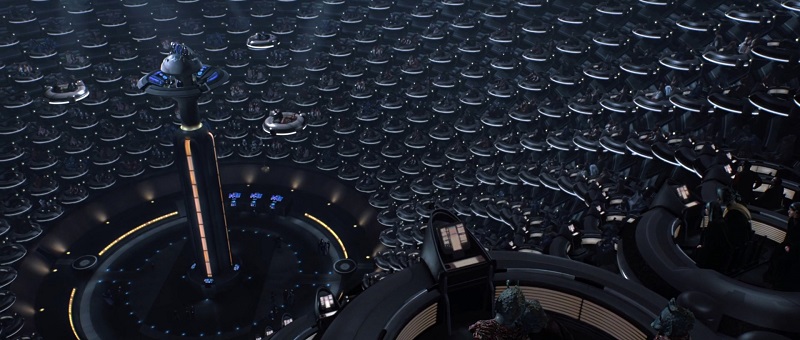
Politics have been part of Star Wars since the opening pages of Alan Dean Foster’s novelization of A New Hope told the story of how the Old Republic became the Empire not through a military coup, but because it rotted from within due to corruption. With the publication of Claudia Gray’s political drama Bloodline, and the revelation that its central conflict arose from suggestions by Episode VIII director Rian Johnson, politics are once again at the forefront of the Star Wars universe. But does the saga have a core political philosophy, or make a political statement? If it does, how does it relate to the overall philosophy of Star Wars? And can we use it to predict where the franchise might take us next?
Harmony and corruption in the old Republic
The Phantom Menace is the clearest statement of George Lucas’s political outlook, and we can use it as a starting point to follow this thread through the rest of his six-episode saga. On a narrative level, TPM is the story of Padmé Amidala, told mainly through the eyes of Qui-Gon Jinn: the core conflict against the Trade Federation is Padmé’s, and it is her choices – first to leave Naboo and appeal to the Senate, then to return and unite her people with the Gungans – that drive the story and give it shape. It is unlike any other film in the saga – not the mythic hero’s journey of a Jedi-to-be, but the story of a young woman’s political coming-of-age.
Padmé leaves Naboo because she believes in the ability of the Senate to save her people from the Federation. Arriving on Tatooine, however, Padmé is shocked to discover that there is still slavery in the galaxy, and that there are places where the laws of the Republic simply do not exist. Even Republic money is worthless out here, and the entire planet is controlled by gangsters. The implication is clear: the Republic doesn’t care about what happens on the galactic frontier. When we reach Coruscant, we discover that the Trade Federation, a corporation driven by profit, has its own seat in the Senate, giving it a voice in galactic affairs that is equal to any Republic system, and stronger than worlds such as Tatooine. Taking advantage of legalism and bureaucracy, the Federation is able to stall the Senate’s actions. Read More
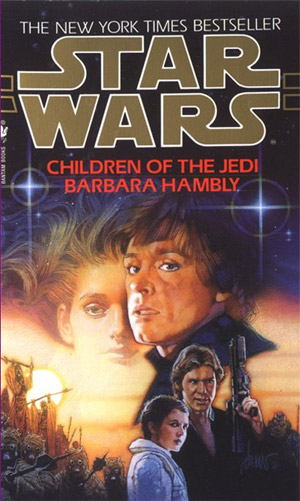
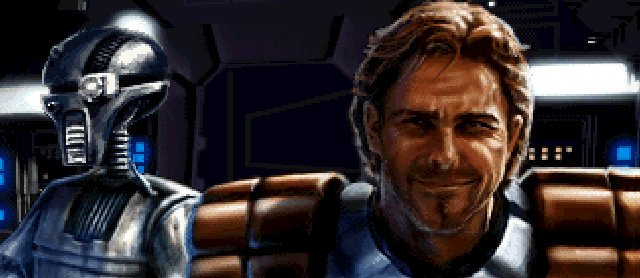
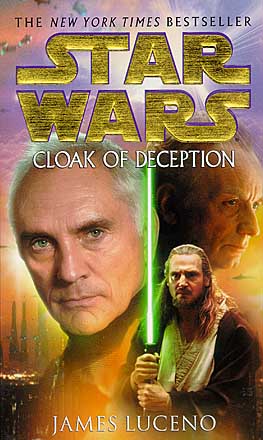 A “fix” book? What on earth is a fix book? Much as we may love it, over the years, Star Wars has acquired a deserved reputation for some quite off the wall plot concepts. Ideas like casually dropping the bomb that Vader is Luke’s father to the far more infamous taxation plot of The Phantom Menace. In some cases, a book comes out and addresses such plots head on. It considers how to either make a broken plot work or enhance an existing one that works adequately but could be improved. With the advent of the prequels, this became more noticeable but was not restricted to them. Is Bloodline one of these books? No, it isn’t. Why? Read on…
A “fix” book? What on earth is a fix book? Much as we may love it, over the years, Star Wars has acquired a deserved reputation for some quite off the wall plot concepts. Ideas like casually dropping the bomb that Vader is Luke’s father to the far more infamous taxation plot of The Phantom Menace. In some cases, a book comes out and addresses such plots head on. It considers how to either make a broken plot work or enhance an existing one that works adequately but could be improved. With the advent of the prequels, this became more noticeable but was not restricted to them. Is Bloodline one of these books? No, it isn’t. Why? Read on…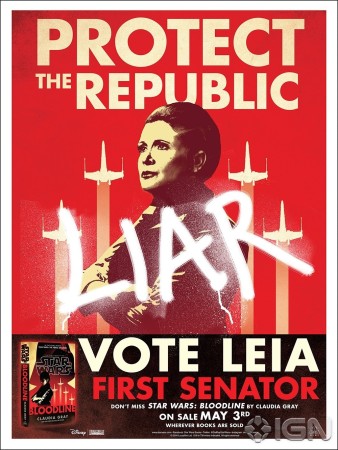 Bloodline was just the Star Wars tale I’d been waiting for. I love politics, and I have been wanting a good Leia-centric book in which she’s really in her element as a politician. In that, Bloodline was outstanding- and it did indeed answer a good deal of my questions about The Force Awakens‘ political situation and just what had happened to the galaxy. I’m glad that not all of the questions were answered, and that there is still so much room to tell stories in the galaxy, but this was just what I needed to read.
Bloodline was just the Star Wars tale I’d been waiting for. I love politics, and I have been wanting a good Leia-centric book in which she’s really in her element as a politician. In that, Bloodline was outstanding- and it did indeed answer a good deal of my questions about The Force Awakens‘ political situation and just what had happened to the galaxy. I’m glad that not all of the questions were answered, and that there is still so much room to tell stories in the galaxy, but this was just what I needed to read. 